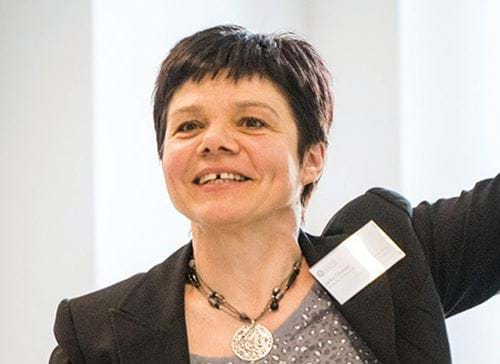IChemE calls on UK Government to support engineering green skills
ICHEME has called on the UK Government to support the education and reskilling of engineers to help bring about a sustainable future.
On 23 February, IChemE Fellow Jarka Glassey represented IChemE at a virtual roundtable meeting with the Government Department for Education (DfE). Alongside partners of the National Engineering Policy Centre, IChemE was invited to advise how educators can provide people with the knowledge, skills, and tools necessary to deal with climate change. The DfE is set to publish a strategy in April on sustainability and climate change education.

Glassey, who is Professor of Chemical Engineering Education at Newcastle University, proposed that the DfE, professional engineering institutions and higher education institutions work together on both the continuing professional development (CPD) of practising engineers and the upskilling of the current generation of engineering students so that future engineers have the skills and knowledge required to take on greener jobs or operate more sustainably in existing sectors.
Glassey explained that IChemE has published a Climate Change Position Statement and that last year the accreditation guidelines for chemical engineering courses were updated so that universities must show that sustainability and ethics are not just taught as separate topics but are demonstrated throughout university culture. Last month, IChemE launched a Sustainability Hub that offers free resources and training to members so they can make a positive impact on sustainability.
Following the meeting, Glassey said: “Chemical, biochemical and process engineers have the essential skills and knowledge to develop innovative solutions to the grand societal challenges as highlighted in our Chemical Engineering Matters roadmap and the priority areas identified by IChemE’s Learned Society Committee. On top of the technical skills and knowledge, the systems analysis and project management skills we can offer to policymakers would ensure effective and timely implementation of sensible policies, whether this is in the sustainability or education arena.”
Glassey acknowledged that a key priority for the DfE will be minimising the impact of Covid-19 on the “lost generation” of children whose education has been disrupted throughout the pandemic. “But climate issues cannot wait until those are resolved,” Glassey said. “There was definitely a strong sense of willingness from the DfE personnel present at the meeting to work with us on this.”
“Chemical engineers must actively get involved in all of the initiatives and actions highlighted by the DfE in this strategy including education, reskilling and upskilling, provision of educational resources and estate management and operation, and we must collaborate with fellow engineers and scientists to ensure that the solutions we arrive at together best address societal needs. Like process safety culture, sustainability and ethics culture has to be integral to everything we do.”
Last year, a survey of chemical engineers working in the oil and gas sector found that many are looking to switch to another sector; there are concerns that their existing qualifications don’t guarantee employment; and called for competency mapping between industries to help demonstrate transferable skills.
Recent Editions
Catch up on the latest news, views and jobs from The Chemical Engineer. Below are the four latest issues. View a wider selection of the archive from within the Magazine section of this site.




